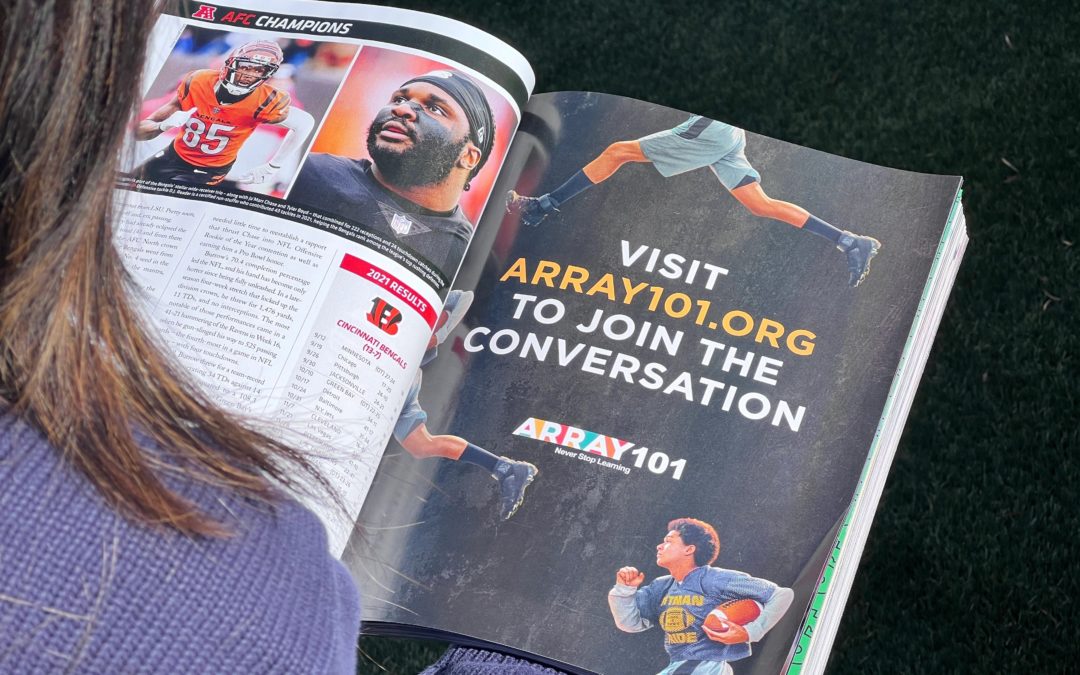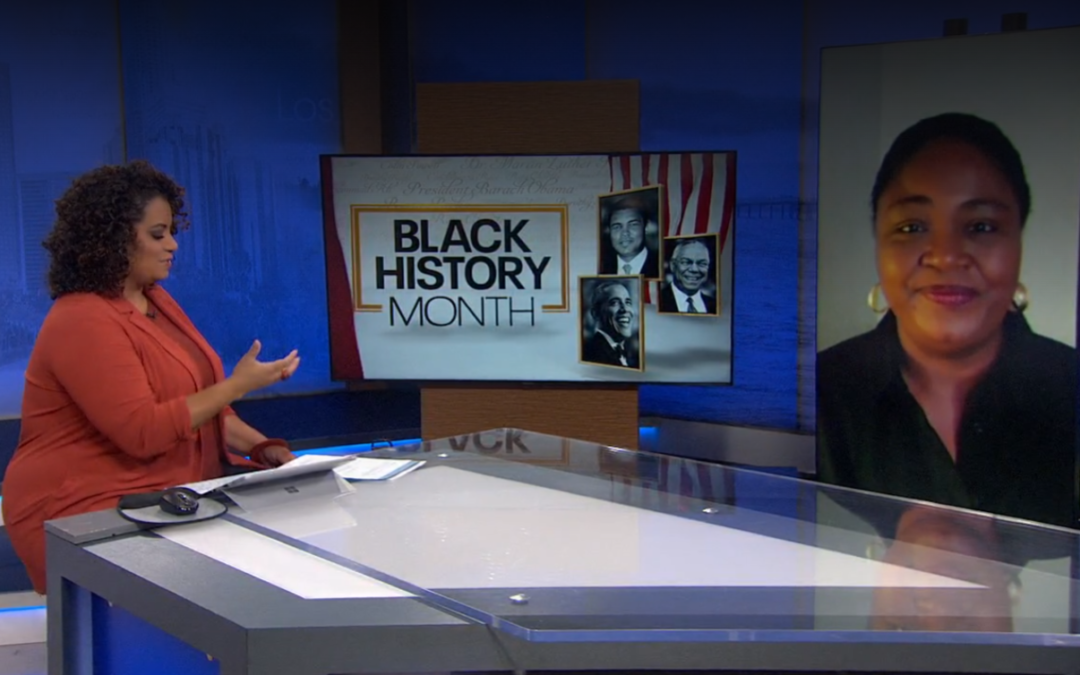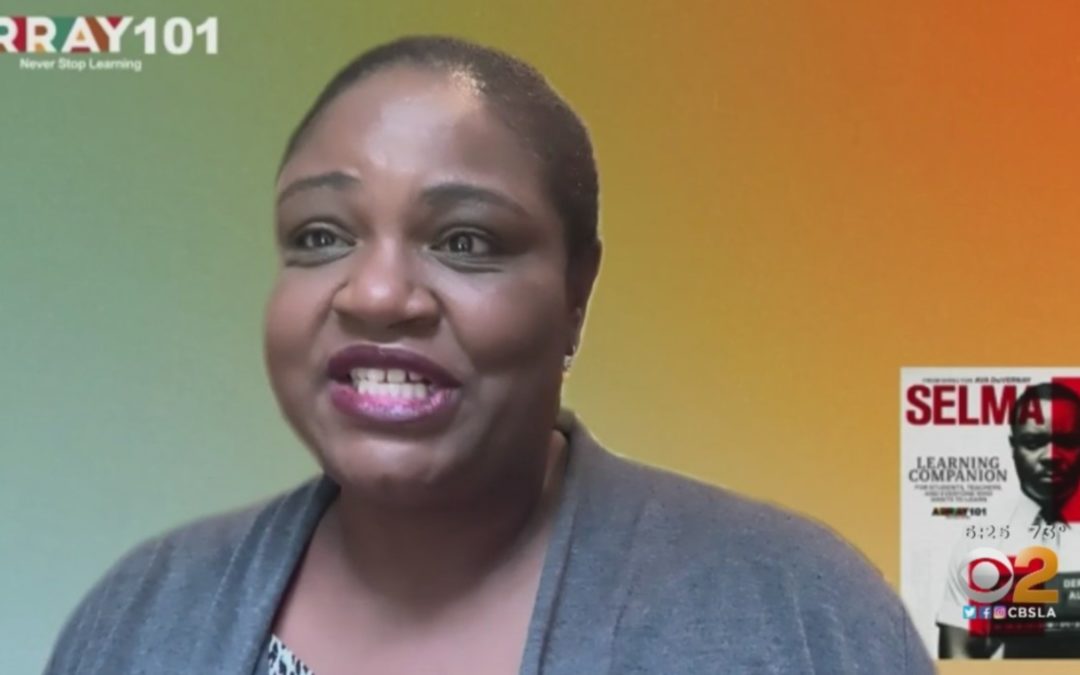
by USC Annenberg Media | Mar 2, 2022 | News
Ava Duvernay’s Array 101 placed Colin Kaepernick’s story front and center in February as it rolled out full-page ads in print media and showed up in the official Super Bowl program to promote a learning initiative focused on the former NFL quarterback.

by Deadline | Feb 12, 2022 | News
Long a social justice thorn in the league’s paw, the ex-San Francisco 49ers quarterback isn’t taking the field at SoFi Stadium as the L.A. Rams take on the Cincinnati Bengals on February 13. However, a fictionalized version of the activist will be featured in the official program for Super Bowl LVI, I’ve learned.

by Good Day LA | Feb 1, 2022 | News
When any form of art is released, a lot of the meaning and messages sometimes don’t ever get the discussions they deserve. That’s why a group called ‘ARRAY’ is putting out what it calls ‘learning companions’. Each is put together by subject matter experts and they examine projects and break down important themes and facts that otherwise may go unnoticed. Tammy Garnes, VP of Education and Understanding from ARRAY, talked more about it.

by Los Angeles Times | Sep 13, 2021 | News
When massive protests erupted nationwide last summer after the murder of George Floyd by Minneapolis police, the entertainment industry was initially slow to respond. Studios and major corporations responsible for creating content to entertain America kept their distance.

by CBS News Los Angeles | Jun 20, 2021 | News
The 2014 Oscar nominated film “Selma,” directed by Ava Duvernay, along with it’s companion study guide, Array 101, will be used as part of Los Angeles Unified School District’s summer curriculum. The film portrays Dr. Martin Luther King Junior’s 1965 campaign for voting rights.

by Wired | Sep 9, 2020 | News
DuVernay may be the most relevant director of 2020. Her body of work includes Selma, When They See Us—about the Central Park Five—and 13th, her 2016 documentary about mass incarceration. (Viewership of the Netflix doc skyrocketed in the three weeks following George Floyd’s murder.) This year she launched the online social justice course Array 101, as well as LEAP, a fund for artists whose work explores police violence.





